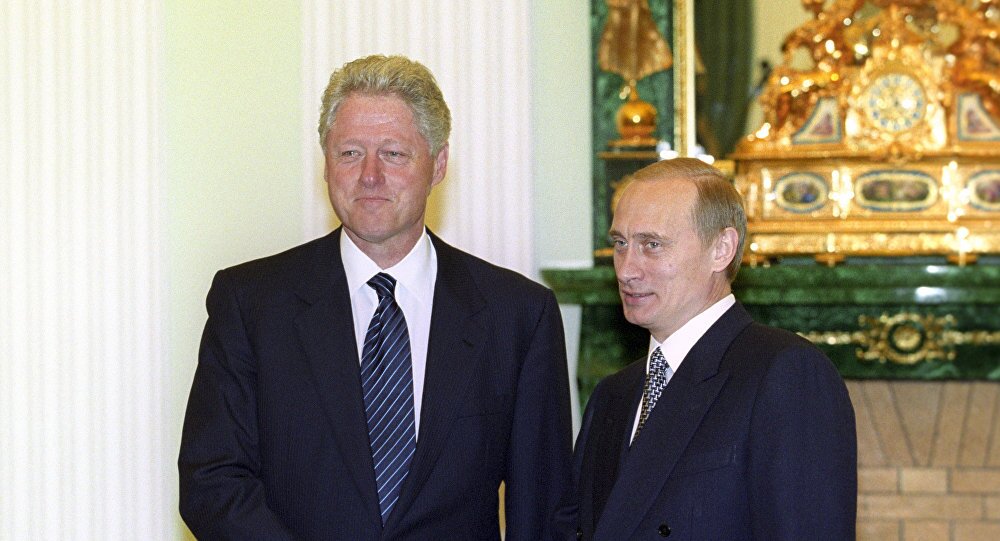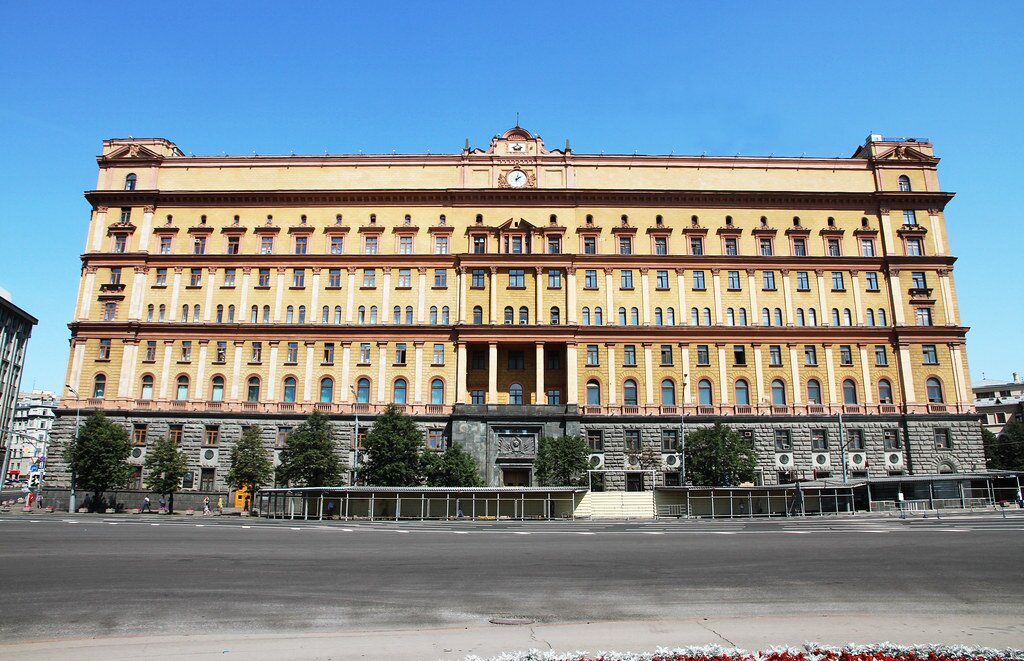James Ward is a lawyer, privacy advocate, and fan of listing things in threes. Nothing he says here should be considered legal advice/don’t get legal advice from social media posts. He promises he’s not as smug as he looks in his profile picture.
I think about Russia often. I spent most of my time in University learning Russian, writing about Russia, reading Russian literature, and following Russian politics. In high school, I knew more about Yevgeniy Primakov or the Yabloko Party than I did about pop music. I still occasionally sing Russian folk songs to myself when I’m working. I have a lot of love for the culture, the people, the history. This week, more than most, those recollections are at the top of my mind, observing the world prepare for a Russian war in Ukraine.
Our Man in Moscow?
I’m not claiming any special expertise -- simply pointing out that looking at Russia has been a part of my life for more than two decades, even when it was fashionable to think that the complexity of Russia was over or concerns about what Moscow would do were passé. I recall Barack Obama mocking Mitt Romney’s views on Putin in 2012 by saying “the 1980s called, they want their foreign policy back.” A pithy line, and one in keeping with the typical tripartite American approach to Russia: mock, ignore, overreact. NATO members, on the whole, tend to be warier of Moscow – certainly, the former Soviet states are – but the Americans predominate financially and militarily, and so the Alliance tends to sound quite a bit like Washington.
For the mid-90s Americans, Russia was a mockery. Dancing, bumbling Yeltsin the sot was no threat, and the United States heaved a cathartic collective sigh of relief. And when Putin came to power in 1999, the U.S. saw a short, pale former spook who seemed to get on well with Clinton and Bush. Even his KGB/FSB ties seemed to make him palatable: not an oligarch, he was little more than an apparatchik, and certainly no great spy. Ignore, ignore, ignore.
Join the Waitlist

But even a casual observation of Russia from 1999-2012 would have seen an unmistakable pattern of power accretion, border wars, minority subjugation, and an emergent cult of personality. Keener observers would have told you that Putin was, in fact, following the very same model that his predecessors had done, down to the overdone machismo.
And now, after a decade of brushfire wars in the Caucuses, Syria, and Georgia bring us to the brink of what was, twelve (three?) months ago, unthinkable: European war. Russia’s troops are already in Eastern Ukraine, and the likelihood of a major occupation is high. Putin now assumes the image of a kind of Bond villain, complete with cowering toadies and delusional talk of reunifying the USSR. All the while, the commentators cannot find a theme that sticks the way they want. He is a madman, he is a poseur, he is a realist, he is an imperialist, he is a bully. This is the time when the third prong of the American response mechanism would normally kick in, and an overreaction surely is in the offing.
Why have commentators gotten it wrong so far? How does the West avoid overreacting?
The key, I think, lies in Putin’s background. We observe the shirtless horseback riding, the animal pelts, the tirades at aides in public fora, the swaggering walk, and see a spy on parade. That emphasis on image was, indeed, forged in the KGB of the 1970s-1980s, but not in the way we conventionally think. And the difference is a meaningful one.
The Lubyanka School
Some context is important. The KGB under Andropov, Chebrikov, and Kryuchkov was powerful, to be sure. But it was not the omniscient, omnipresent, omnipotent force portrayed in film. It was the backbone of the Soviet state, however, in that it was the source of the Communist Party’s control over the apparatus of government and a leverageable threat against dissent -- even when such dissent was rare. Andropov even became Premier, the only KGB head to do so, a rarity tied to the same concept behind why Jesuits don’t normally become Pope: better to be behind the scenes and hold the levers than show your intentions by acting.

And here we come to the key point about the KGB in the 1970s and 1980s as it relates to Putin. KGB enforced orthodoxy, yes, but it was highly professionalised and highly analytical. There was far less dilettantism than in, say, CIA, and certainly fewer political hacks at the top than in other ministries. That isn’t to say that KGB didn’t have the flaws that all bureaucracies do, but instead that, largely, it promoted able, level-headed, reliably consistent men to the top. That’s the thing about good spycraft -- it’s not about flash, it’s about diligence. George Smiley is a good spy; James Bond is not.
Here is our first clue into Putin, then. He is consistent, and values consistency. Russia has had three foreign policy aims in 500 years: a warm water port, secure southern borders, and control over Ukraine. What has Putin prioritised since 1999? Control of the Caucuses, seizing Crimea, and, now, controlling Ukraine. You could’ve written this prediction out on a napkin and 1999 and not missed a thing. Putin has followed a well-worn path as leader, one that the Tsars and General Secretaries before him followed too. And he has walked that path with the discipline he learned in 1975-1991, by methodical, slow, and sometimes bloody consistency. It has brought him to the gates of Kiev.
But what other lessons emerge from looking to the Lubyanka? The power of image. By 1982, when Andropov became Premier, there was no question that the Soviet economy was incapable of meeting increasing demands for public expenditures and foreign activity. The Afghan War was draining resources at an alarming rate, real wages were stagnant, commodity prices were rising, and the need for imports was weakening the ruble. More than this, the resurgent American economy and the massive expenditures Washington was making in defence spending were unattainable. There was simply no way to keep up.
The KGB had better knowledge of this than just about any group inside the USSR. Not only did they have access to the actual, rather than massaged, facts about life in the West, there was an in-grown aspect of their professionalism that made self-deception a cardinal sin.
That’s the thing about good spycraft -- it’s not about flash, it’s about diligence. George Smiley is a good spy; James Bond is not.
What do you do when you know you can’t keep up? You can admit defeat, or you can posture, you can rely on image to camouflage what you truly intend, and what you truly need. The choice was obvious: KGB’s entire operational model was about image -- the image of the ever-present, ever-watchful “Komitet” man. Never mind the fact that it was the GRU, military intelligence, that had the bigger budgets and Politburo clout (it still does), as long as the KGB seemed to have power, it had it. And, correlatively, as long as the Soviet Union seemed to be strong, it was.
This was Gorbachev’s blasphemy - the introduction of the possibility of weakness, doubt, fissure. Glasnost and perestroika may not have been the great liberal efforts the Western media likes to portray them as being, but they were enough, just enough, to weaken the Soviet image. By 1989, the cracks became an outright division, with the dissolution of East Germany. By late 1990, the risks were too great for the KGB to tolerate. In August of the next year, Kryuchkov spearheaded the failed August Coup attempt, the KGB’s last effort to preserve the image of a unified, “hard-line” Soviet government. The failure was fatal for the USSR.
Putin, a Lieutenant Colonel at this point, watched everything unfold from St. Petersburg. He resigned on the second day of the coup -- perhaps because he truly believed that it was wrong, perhaps because he was already planning a run for office in the more liberal-minded second city. Either way, the lessons of the failed coup could not have been lost on him. By the time the image is broken, even the most strident action isn’t enough to conjure it back into being.
A Potemkin President
This lesson reappears in every Putin public statement, every photo op. Think of his swaggering walk. There have been many former spies in government, including in Russia. None of them do the “Putin Walk,” and, frankly, why would they? It’s a convoluted way to move even when you’re carrying a sidearm. But Putin knows that it’s part of his image, and so it has become more pronounced, not less, with the passing years.
Early on, he wanted to project an image of stability and calm, and so his wife and children are everywhere. Later, when he wants to project power, he quietly divorces his wife, takes younger mistresses, and starts shooting tigers. Even his “temper” is artifice. In a recent publicly-viewed meeting, he angrily shouted at his national security advisor and, as if on cue, Western media outlets poured out their analysis of his rage, as if he were somehow, after all of these years of imperturbability, not capable of restraint on television. Putin is a walking Potemkin village, a personified reflection of the Russia he wants to convey.

How do the lessons of the Lubyanka help us now? If nothing else, they should dispel some of the mythos. Putin is no madman, he is seemingly no more egomaniacal than other longtime leaders. He is also single-minded in his determination to get what he wants, which he believes is concentric with what Russia wants. That single-mindedness means that observers can, with some clarity, predict what comes after Ukraine, because there is definitely more to come after Ukraine.
Even his “temper” is artifice . . . . as if he were somehow, after all of these years of imperturbability, not capable of restraint on television.
Look for him to turn his attention to sabre-rattling in the Baltics (again), integration with Kazakhstan (already underway), and a greater push in the Caucuses. Look for him to push for a kind of pan-Slavic leadership role (see, e.g., Serbia in the 1990s) and a demand for obeisance from Moldova and other non-NATO states. And look for attempts to create disunity in NATO itself, particularly in Slovenia, Slovakia, Albania, and Poland. For Putin, a divided Europe is a strong Russia -- another consistent theme in Moscow and St. Petersburg for the last 300 years.
Expect Putin to pursue these goals in tandem and alternately, always with the lever of cutting off gas supplies to Western Europe or causing havoc by acts in the Middle East or cyberwarfare. And expect him to be consistent, methodical, and unafraid to cause bloodshed. The critical American error may be overreaction, but underestimation is no less dangerous.
Is foreknowledge enough to mean successfully challenging Russia? A unified, consistent NATO is, in my opinion, capable of curtaining Russian aggression, yes. But it requires the kind of patience and vision absent from Washington since the days of George Kennan. For the United States, NATO, and the West to respond well, they will need to practice self-awareness, attention to detail, and determination -- exactly the lessons Putin learned in the KGB.
Join the Conversation
Join the waitlist to share your thoughts and join the conversation.
James Ward
James Ward is a lawyer, privacy advocate, and fan of listing things in threes. Nothing he says here should be considered legal advice/don’t get legal advice from social media posts. He promises he’s not as smug as he looks in his profile picture.
.png)